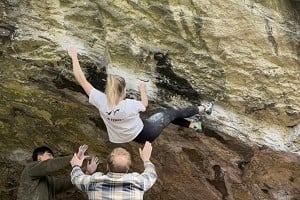
Is a common response to the current news story surrounding mountain rescue radios, but is that actually the case?
In reality, Mountain Rescue Teams (MRT) pay nothing for their radio spectrum use. Under a new pricing scheme currently under consultation by Ofcom, that charge will change to the sum total of... £0 . That's nothing, zilch, zip, diddly-squat. So what's the problem? There isn't one.
Radio fees are complex and Ofcom, just like all government quangos, have wrapped them up in a spaghetti bowl of language noodles. So let's see if we can untangle the mess.
Ofcom sets charges for radio spectrum use. The radio channels used by MRT's are assigned to, and paid for by, the Maritime and Coastguard Agency (MCA) which is an executive agency of the Department for Transport. The MCA is funded by general taxation. There are no plans to change this. So the charges for MRT's radio use are simply passed from one government agency (MCA) to another (Ofcom).
Simple enough? Where it gets more complex, is with the Royal National Lifeboats Institution (RNLI). Currently the RNLI has some free spectrum use (in the same way that MRTs do - specifically for their search and rescue operations) but has to pay for other parts of its radio usage, just like many other users. These other parts will be affected by a pricing change, although Ofcom estimates that the RNLI's annual fee will actually be reduced.
RNLI media relations manager Danielle Rush is quoted on Walesonline as saying:
“The RNLI currently pays £40,000 in licence fees annually to Ofcom for the use of radio channels in our station/boathouse radios, lifeguard radios, launching vehicles and pager system”
According to the Ofcom website: “The RNLI may see its charges fall as a result of our proposal to offer a single, lower cost licence for multiple users...
...We estimate that, based on the RNLI's usage, its fee under the new arrangements would be less than £20,000.”
I spoke to Meleri Thomas at Ofcom, who stated:
“Search and rescue teams will not be affected by the proposals for new fees.”
The only agency that could be affected by a change in fees is the MCA, and it is unlikely that they would set a new precedent and impose any charges on search and rescue teams such as MRT's. The reasoning behind Ofcom's change of pricing is to try and limit spectrum use (and possibly increase revenue) in the maritime and aeronautical sectors, of which the mountain rescue is a tiny fraction.
Whilst mountain rescue teams do face many difficulties, both with funding and with real dangers on the hillside, increased radio charges are, according to Ofcom, not one of them.








Comments